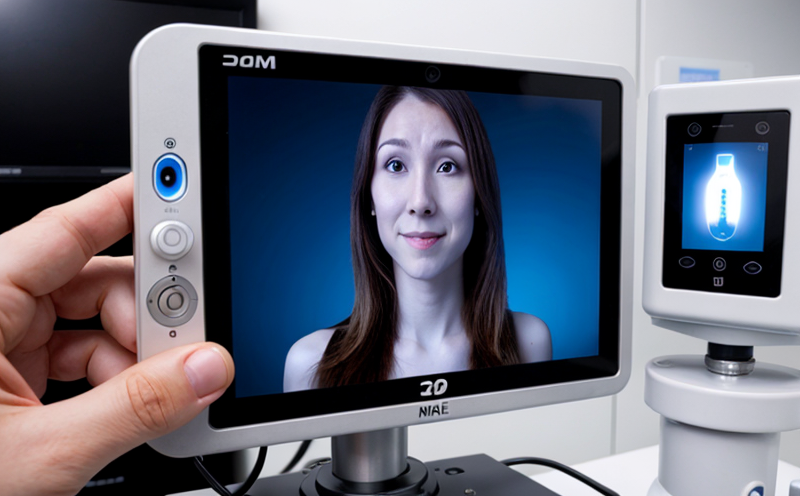ASTM F2077 Intervertebral Body Fusion Device Shear Testing
The ASTM F2077 standard provides a comprehensive framework for evaluating the shear strength of intervertebral body fusion devices (IBFDs). These devices are critical components in spinal surgery, designed to stabilize the spine and promote bone healing. The ASTM F2077 test is particularly important because it ensures that the materials used in these devices meet stringent mechanical performance requirements.
The standard specifies a method for determining the shear strength of IBFDs using a specially designed testing apparatus. The device under test (DUT) is subjected to a controlled shear force, and the maximum load at failure is recorded. This information is crucial for understanding how the device will perform in vivo, where mechanical stresses can vary significantly.
The ASTM F2077 test focuses on two key parameters: the nominal shear strength and the residual deformation after testing. Nominal shear strength provides insight into the material's intrinsic strength, while residual deformation gives an indication of the device's flexibility under load. Both metrics are essential for ensuring that IBFDs perform reliably during and after surgical implantation.
The testing apparatus used in ASTM F2077 is a specialized fixture designed to replicate the shear forces experienced by the DUT during spinal fusion procedures. The fixture includes a clamping mechanism to secure the DUT, as well as a loading system that applies controlled shear loads. The test setup ensures that the shear force is applied uniformly across the cross-section of the IBFD.
The standard also specifies acceptance criteria for both nominal shear strength and residual deformation. These criteria are based on the material properties of the device and its intended use in spinal fusion surgery. Compliance with these criteria is essential to ensure that the device meets regulatory requirements and provides consistent performance across different batches.
In addition to mechanical testing, ASTM F2077 also considers the biocompatibility of IBFDs. The standard recommends that manufacturers perform biocompatibility tests on materials before using them in medical devices. This ensures that the materials are safe for long-term use within the body and do not elicit adverse reactions.
The ASTM F2077 test is typically performed by accredited laboratories equipped with state-of-the-art testing equipment. These labs have the expertise to perform the test accurately and consistently, ensuring reliable results. The laboratory will also provide detailed reports that document the test parameters, loading conditions, and failure characteristics of the DUT.
The importance of ASTM F2077 cannot be overstated, as it plays a critical role in ensuring the safety and efficacy of intervertebral body fusion devices. By adhering to this standard, manufacturers can demonstrate compliance with regulatory requirements and provide confidence in the performance of their products.
Benefits
The ASTM F2077 shear test offers several key benefits for medical device manufacturers, quality managers, and compliance officers:
- Enhanced Reliability: The test ensures that IBFDs meet strict mechanical performance criteria, enhancing the reliability of spinal fusion devices.
- Regulatory Compliance: By adhering to ASTM F2077, manufacturers can demonstrate compliance with regulatory requirements, simplifying the approval process for new products.
- Patient Safety: Reliable IBFDs reduce the risk of complications associated with spinal fusion surgeries, ensuring patient safety and satisfaction.
- Informed Decision-Making: The detailed reports provided by accredited laboratories offer valuable insights into device performance, aiding in informed decision-making during product development.
- Consistent Performance: ASTM F2077 ensures that IBFDs perform consistently across different batches and manufacturing runs, maintaining high standards of quality.
Why Choose This Test
- Reputation: Accredited laboratories performing ASTM F2077 shear testing have a proven track record of delivering reliable and accurate results.
- Expertise: These labs employ experienced engineers and technicians who are well-versed in the intricacies of this test method.
- State-of-the-Art Equipment: Accredited laboratories use cutting-edge testing equipment that ensures consistent and precise results.
- Comprehensive Reporting: Detailed reports provide valuable insights into device performance, aiding informed decision-making during product development.
Use Cases and Application Examples
The ASTM F2077 shear test is widely used in the medical device industry to evaluate the mechanical performance of intervertebral body fusion devices. This test ensures that IBFDs meet strict strength and deformation criteria, enhancing reliability and patient safety.
A typical use case involves a manufacturer developing a new IBFD for spinal fusion surgery. The manufacturer would perform ASTM F2077 testing at critical stages of the product development lifecycle, including initial design validation, production validation, and periodic quality assurance checks. This ensures that the device meets regulatory requirements and provides consistent performance across different batches.
An application example is a company developing an IBFD made from a novel biomaterial. The manufacturer would use ASTM F2077 to evaluate the shear strength of this material, ensuring it meets the necessary mechanical properties before proceeding with clinical trials and market approval.
The results of ASTM F2077 testing are also valuable for quality managers and compliance officers in ensuring that the company's products meet regulatory requirements. The detailed reports provide insights into device performance, aiding informed decision-making during product development.





